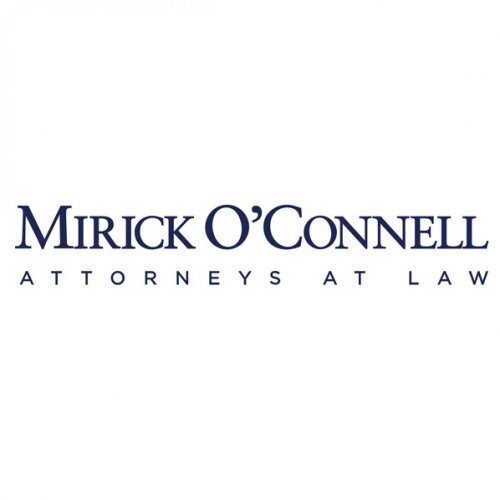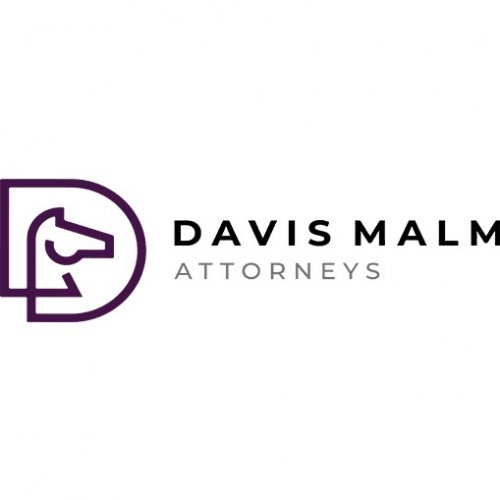Best Bankruptcy & Debt Lawyers in Massachusetts
Share your needs with us, get contacted by law firms.
Free. Takes 2 min.
Or refine your search by selecting a city:
List of the best lawyers in Massachusetts, United States
United States Bankruptcy & Debt Legal Articles
Browse our 2 legal articles about Bankruptcy & Debt in United States written by expert lawyers.
- Filing Chapter 7 in 2026 United States: New Income Limits
- Chapter 7 gives a near-total discharge of most unsecured debt, but you must pass a "means test" that compares your household income to your state's median income for your family size in 2026. The U.S. Trustee Program updates the state median income numbers at least once a year; you qualify... Read more →
- Debt Collectors in the US: Stop Harassment and Verify Debt
- You have strong federal rights under the Fair Debt Collection Practices Act (FDCPA) and CFPB Regulation F. Collectors cannot harass you, must send a validation notice, and must stop collecting until they verify if you dispute in writing within 30 days. Tell collectors to stop contacting you, then follow up... Read more →
About Bankruptcy & Debt Law in Massachusetts, United States
Bankruptcy and debt law in Massachusetts provides a structured legal framework for individuals and businesses struggling with unmanageable debt. This area of law offers several avenues for seeking relief, including filing for bankruptcy under federal law and defending against debt collection actions. Bankruptcy allows debtors to either discharge certain debts or reorganize them into manageable payment plans, depending on the chapter filed. Massachusetts residents can access both federal bankruptcy courts and state-specific protections, ensuring rights and duties are clear for borrowers and creditors alike.
Why You May Need a Lawyer
Dealing with significant debt or considering bankruptcy can be a complex and stressful process. There are many situations where legal assistance is critical, including:
- If you are overwhelmed by credit card, medical, or personal loan debt
- When you are faced with foreclosure, wage garnishment, or debt collection lawsuits
- If you are unsure which type of bankruptcy (Chapter 7, 11, or 13) is best for your situation
- When creditors are violating your rights or using aggressive tactics
- If you want to stop creditor harassment and protect essential assets like your home or car
- For small business owners facing insolvency or business closure
- To navigate complex paperwork and court procedures involved in bankruptcy filings
A qualified bankruptcy attorney can assess your unique circumstances, protect your rights, and help you make informed decisions about your financial future.
Local Laws Overview
Massachusetts residents must follow federal bankruptcy laws, but several local rules and exemptions are also relevant. The U.S. Bankruptcy Court for the District of Massachusetts oversees bankruptcy cases. Some key aspects of local laws include:
- Exemptions: Massachusetts allows you to choose between state law exemptions and federal bankruptcy exemptions, which can protect certain property (like your primary residence, vehicle, retirement accounts, and personal belongings) during bankruptcy.
- Homestead Protection: Massachusetts provides a generous homestead exemption, shielding equity in your principal place of residence from creditors up to a certain limit if properly declared.
- Automatic Stay: Filing for bankruptcy in Massachusetts triggers an automatic stay, stopping most collections, foreclosures, and lawsuits immediately.
- Means Test: To file for Chapter 7 bankruptcy, you must pass a means test to demonstrate your income is below a certain level for Massachusetts residents.
- Credit Counseling: Anyone filing for bankruptcy must first complete an approved credit counseling course and later a debtor education class before discharge.
- Debt Collection Protections: Massachusetts has additional rules for debt collection, including laws against deceptive or unfair collection practices and specific licensing requirements for collection agents.
Frequently Asked Questions
What types of bankruptcy are available in Massachusetts?
The most common types are Chapter 7 (liquidation) and Chapter 13 (reorganization for individuals). Chapter 11 is typically used by businesses. Each chapter has different eligibility requirements and impacts on your assets and debts.
Will I lose my home or car if I file for bankruptcy?
In many cases, you can keep your home or car if the equity is protected by Massachusetts or federal exemptions. Filing under Chapter 13 may also help you catch up on overdue payments and avoid foreclosure.
How does bankruptcy affect my credit score?
A bankruptcy filing will appear on your credit report for up to 10 years. While it lowers your credit score initially, many people can begin rebuilding credit soon after discharge.
Can all my debts be discharged in bankruptcy?
Not all debts can be wiped out in bankruptcy. Common exceptions include student loans (with rare exceptions), recent taxes, child support, alimony, and personal injury debts from DUI incidents.
What is the means test for bankruptcy in Massachusetts?
The means test compares your income to the median for Massachusetts households of similar size. If your income is below the median, you typically qualify for Chapter 7. If not, you may still qualify under certain conditions or may need to file Chapter 13.
What is the role of the trustee in my bankruptcy case?
A trustee is assigned to review your case, sell nonexempt assets (in Chapter 7), or oversee your repayment plan (in Chapter 13). The trustee ensures creditors' rights are fairly considered under the law.
What happens at the meeting of creditors (341 meeting)?
You must attend this meeting, where the trustee and creditors may ask questions about your finances and bankruptcy petition. It is usually brief and informal, and your lawyer will accompany you.
Can creditors continue to contact me after I file for bankruptcy?
No. The automatic stay goes into effect as soon as you file, requiring creditors to stop all collection efforts, including calls, letters, lawsuits, and wage garnishments.
Is bankruptcy the only way to deal with debt?
No. Alternatives include debt consolidation, credit counseling, negotiating settlements, or working out payment plans with creditors. A lawyer can help you explore all options.
How can I find a qualified bankruptcy lawyer in Massachusetts?
Consider seeking referrals, checking with local bar associations, or consulting national and state legal aid organizations. Look for attorneys experienced in Massachusetts bankruptcy and debt law.
Additional Resources
If you need more information or support regarding bankruptcy and debt in Massachusetts, consider these helpful resources:
- The United States Bankruptcy Court for the District of Massachusetts
- Massachusetts Bar Association - Lawyer Referral Service
- Massachusetts Attorney General's Office - Consumer Protection Division
- Massachusetts Legal Assistance Corporation (MLAC) for low-income individuals
- National Foundation for Credit Counseling (NFCC)
- Consumer Financial Protection Bureau (CFPB)
- Local Community Action Programs offering debt management guidance
Next Steps
If you are facing overwhelming debt or considering bankruptcy in Massachusetts, it is important to act quickly. Start by assessing your financial situation and gathering relevant documents about your debts, income, and assets. Reach out to a qualified bankruptcy and debt attorney for a confidential consultation. They can help you understand your options, outline the best course of action, and guide you through the complex process. Most bankruptcy attorneys offer a free or low-cost initial consultation. Remember to take advantage of reputable resources and avoid firms promising unrealistic results or charging high upfront fees. Taking early action is key to protecting your financial future and achieving a fresh start.
Lawzana helps you find the best lawyers and law firms in Massachusetts through a curated and pre-screened list of qualified legal professionals. Our platform offers rankings and detailed profiles of attorneys and law firms, allowing you to compare based on practice areas, including Bankruptcy & Debt, experience, and client feedback.
Each profile includes a description of the firm's areas of practice, client reviews, team members and partners, year of establishment, spoken languages, office locations, contact information, social media presence, and any published articles or resources. Most firms on our platform speak English and are experienced in both local and international legal matters.
Get a quote from top-rated law firms in Massachusetts, United States — quickly, securely, and without unnecessary hassle.
Disclaimer:
The information provided on this page is for general informational purposes only and does not constitute legal advice. While we strive to ensure the accuracy and relevance of the content, legal information may change over time, and interpretations of the law can vary. You should always consult with a qualified legal professional for advice specific to your situation.
We disclaim all liability for actions taken or not taken based on the content of this page. If you believe any information is incorrect or outdated, please contact us, and we will review and update it where appropriate.
Browse bankruptcy & debt law firms by service in Massachusetts, United States
Massachusetts, United States Attorneys in related practice areas.
Browse bankruptcy & debt law firms by city in Massachusetts
Refine your search by selecting a city.












